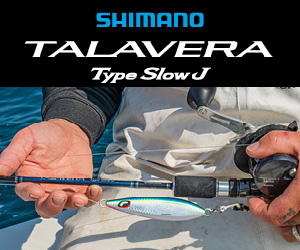On Thursday, April 9th at the Stafford Township Municipal Building in Manahawkin, the New Jersey Marine Fisheries Council (Council) voted in favor of new 2015 regulatory actions regarding black sea bass, summer flounder and the state’s Striped Bass Bonus Program.
The 2015 summer flounder or fluke size and bag limit will remain the same as in 2014, with a five fish bag and 18-inch minimum size limit. This season, the opening day will be May 22 and the final day of the season will be September 26.
Regarding black sea bass, the Council voted to approve the first of the three black sea bass options calling for a season start on May 27 through June 30 with a 15 fish limit; July 1 to July 31 with a two fish limit; October 22 to October 31 with a 15 fish limit and November 1 to December 31 with a 15 fish limit. The size limit will be 12-1/2 inches.
The council also approved measures to replace the current Striped Bass Bonus Program size limit of 28 inches with a new smaller slot size of striped bass between 24 and 28 inches, though that would not go into effect until September 1. The New Jersey Department of Environmental Protection (NJDEP) is expected to submit this regulatory change to legal review by end of day today, and the process could take 3 to 4 weeks before approved by the NJDEP Commissioner.
New Jersey’s Striped Bass Bonus program utilizes the unused commercial quota in the state, providing anglers the opportunity to purchase ‘bonus’ fish through a tag system. Once this new striped bass slot is officially approved by the NJDEP Commissioner, the program itself will actually be suspended until September 1 with no new tags issued until then.
A packed house greeted Council members on Thursday in Stafford Township, but even with a myriad of opinions on the different measures, the positions presented by fishermen were mostly delivered in a respectful, orderly fashion.
With summer flounder specifically, while the difference between the two options was only 5 days off the start of the season, the issue was one of geographic dividing lines.
“The start of the year is far more important than the tail end, everyone is excited now,” said Dave Showell of Absecon Bay Sportsman Center. “If we open up a week earlier, it’s a huge difference when it comes to tackle shops in South Jersey. If flounder’s closed, it’s a complete shutdown.”
The option to start the season on May 17 instead of May 22 had support of other South Jerseyans as well, including Ray Scott’s Dock in Margate City, the Strathmere Fishing Club and the Duke of Fluke charter boat. Other groups including the Jersey Coast Anglers Association (JCAA), United Boatmen, Berkley Striper Club, Fortescue Captains Association and Cape May Charter Association opted to see the season end a week later to prevent an overlap of fishing closures late in the season.
Such is the case with black sea bass, the harvest of which must be cut by 32.8% in 2015 as per NOAA Fisheries. While there were options that could’ve allowed a minimal black sea bass harvest in September to coincide with the fluke ending dates, the members of the audience yesterday afternoon agreed that the choices were more like ‘a sharp stick in the eye or a sharp stick in the ear.’
“Option 1 is the only real option that gives us access to the most amount of fish when the fish are there,” said Capt. Jeff Gutman of the Voyager in Point Pleasant Beach of the Council’s preferred option.
Capt. Adam Nowalsky of the charter boat Karen Ann II out of Atlantic City was even less impressed with the options, urging anglers and business owners in New Jersey to attend the Mid Atlantic Fishery Management Council meetings in Long Branch next week to express their personal views with fisheries managers.
“This is not about conservation, these are pure, punitive measures against fishermen,” Capt. Nowalsky said of the black sea bass measures inflicted upon coastal states by NOAA Fisheries. “At worst what is happening is criminal at the federal level,” Nowalsky told the packed house in Manahawkin, saying that any option outside of ‘status quo’ is “unacceptable to continue.” The crowd erupted in applause.
Capt. Eddie Yates of the Hunter out of Barnegat Light and Cape May echoed Capt. Adam’s charges, pointing out that black sea bass is neither overfished nor is overfishing occurring, yet anglers have been hit with a total 58% in harvest in the past 2 years alone. “This is really affecting commerce,” Yates said.
Noting that black sea bass is “108% rebuilt,” Capt. Bob Bogan of the Gambler said “we just can’t help going over, something has to be liberalized,” while Capt. Howard Bogan said NOAA’s own documentation reveals that the reason why recreational anglers are going over their annual catch limit each year is because of the levels of abundance in the sea bass stock, and ever-shrinking angler quotas.
The so-called punitive measures against fishermen continue to have an adverse impact on the local economies in New Jersey, well documented along the Delaware Bayshore which has been hard hit by both storms and unfair restrictions that favor businesses on the southern side of Delaware Bay.
“We have lost five boats, for-hire boats, so it’s not been a good situation in Fortescue,” said Capt. Mike Rothman of the Bonanza II out of Fortescue.
Recent registration data from the NJDEP shows that the number of saltwater anglers registering to fish in New Jersey dropped by nearly 70,000 between 2012 and 2014, the effects on those regions most affected by Superstorm Sandy clearly impacted.
While some groups and individuals were hoping to see a third black sea bass option that lengthened the season by an additional 38 days by increasing the size limit on black sea bass, many attendees and fisheries advisors felt that an increase in size would also result in an increase in release mortality, while increasing the number of active fishing days could skew the federal recreational data collection numbers to show increased harvest in 2015 which could negatively impact the 2016 season.
Several members of the public stressed the need to have anglers and fellow business owners show up in large numbers for next week’s Mid Atlantic Fishery Management Council meetings in Long Branch, while a text message from one attendee after the meeting noted “we need all of these people at the Mid Atlantic meeting next week.”
The decision to modify the Striped Bass Bonus Program was met with a pretty fair majority, though JCAA supported keeping the one at 28-inch system to better protect the 2010/2011 year class of fish now entering the ‘slot’ size range, while one purely ‘catch and release’ guide from North Jersey referred to meeting attendees as “the catch and kill crowd.”
New Jersey banned the commercial harvest of striped bass over two decades ago, turning the annual commercial quota of striped bass into a “bonus fish” for anglers willing to purchase the tag and keep the daily catch logs used by the state to compile statistics on striped bass. Besides New Jersey, the Atlantic Coastal states of South Carolina, Pennsylvania, Connecticut, New Hampshire, and Maine have all designated striped bass as a recreational only species. However, the only state other than New Jersey which utilizes unused commercial striper quota for a recreational only bonus is Connecticut, which in previous years transferred their 23,750-pound commercial bass quota to a bonus program equating to 4,025 bonus slot fish between 22 and 28 inches in length for anglers.
New Jersey’s new slot program which will begin on September 1 equates to a quota of 215,912 pounds. Given the average of the 24- to 28-inch fish weigh 7-1/2 pounds, New Jersey is set to allow just 28,788 fish to be harvested. It is expected that once the Commissioner signs off on the new tag system and suspends the current one, the NJDEP and Fish and Game officials will have some additional work to do in order to implement the slot tags.
Also in 2015, the ‘for-hire’ sector will also be allowed to utilize a portion of the bonus tags. State biologist Russ Allen has stated in previous meetings that the best returns for bonus tags and accumulation of daily catch logs on striped bass in previous years was when the for-hire captains kept the books. On Thursday, Allen also noted that the most quota ever used in the ‘bonus program’ was one-third of the entire allocation.
“We don’t need three big fish,” Capt. Yates said in supporting the slot option, telling the Council that he and other captains he knows encourage charters to only keep what they plan to utilize.
“We encourage folks to consider not taking a third fish,” said Capt. Steve Bent on the Free Spirit out of Cape May.
In supporting a slot fish, Dave Showell said a public meeting presented by the Recreational Fishing Alliance (RFA) last year in Manahawkin was what helped contribute to his viewpoint. “Most people there asked about a slot fish,” Showell said, adding that the state’s explanation was “we have no data on a slot fish.”
Showell did say he feels the bonus program should be modified however in that every ‘bonus’ fish caught should have a plastic, one-time use only tag affixed to the fish by the permit holder, as opposed to the rather loosely enforced, ‘paper’ permitting process in place currently.
“This paper tag is just an honor system, and sad to say but not all fishermen are honorable,” Showell said to raucous laughs in the room.

